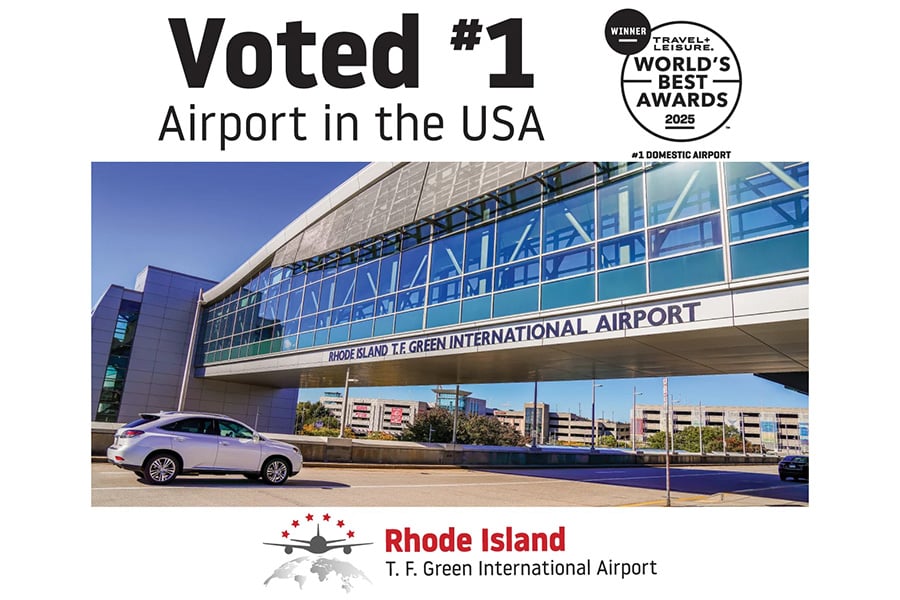First Person: The Letters
The chance discovery of old letters reveals a hidden family history of Holocaust rescue and survival.
When my mother passed away in November 2023, my sister Debbie and I cleaned out an old metal filing cabinet full of sentimental items — photo albums, VHS tapes, yearbooks. Debbie loaded all of it into an old pink suitcase she found in the basement and took it to her Brooklyn brownstone.
On Thanksgiving weekend, we opened a manila envelope full of yellowed papers. They turned out to be correspondence conducted among our paternal grandfather, Morris Joseph Liberman, and his nieces and nephews stuck in Europe during the German invasion. The letters documented Morris’ unflagging efforts to get each a U.S. visa as World War II and the horrors of Nazism unfolded.
We were astounded.
For one, our father never talked about his parents, Dora and Morris — for whom my sister and brother, Michael Joseph, were named. We knew that they had died young, before my parents met, and that my grandfather owned a jewelry store in Richmond, Virginia. We only knew the latter because my mother complained that despite my father’s proximity to jewelry at wholesale prices, she never got so much as a gold chain.
Most of my father’s paternal relatives — including his only brother — had settled in Albuquerque, New Mexico, and Sao Paulo, Brazil. My mother and her sister-in-law did not care for each other, so there was little effort to stay connected. For another, our grandparents had been born in the U.S. or immigrated long before 1939, when Hitler invaded Poland, so we had no idea that the history of the Holocaust was our personal history, too.

A hand-drawn sketch of the camp outside Sarny, Poland, where Chaia Liberman Gershonik and her second husband, Szmerko, were murdered in an August 1942 massacre. Photography courtesy of Ellen Liberman
The letters covered a period from 1939 to 1942, and I immediately recognized a family story I needed to know. I located biographical and genealogical records — ship manifests, death certificates, military registrations, census books, even old advertisements for the Morris Jewelry Company — and added historical context by researching each aspect of the Liberman family’s departure from Portugal and France and their fates in Poland.
But the narrative had unanswered questions. The surviving family were the children of my grandfather’s brother and sister-in-law, Issac and Chaia Liberman. I needed to talk to whoever was still living and could close the gaps. I tracked down relatives in New Mexico, Maine, New York and Brazil. And piece by piece, the story of the shaky paper bridge my grandfather built to save his family took shape.
It is so much bigger than the letters.
I discovered a history of survival, bravery, suffering, the power of kinship, and the lingering traumas of war. Some perished. Chaia and her second husband died facedown, stripped of their possessions, in a pit outside of Sarny, Poland. Her sons — Paris businessmen — and their wives used every bit of coin and smarts, every connection, no matter how tenuous, to escape — despite indifferent and antisemitic officials and the widespread sentiment that Eastern European Jews were not the sort any country wanted to throw into their melting pot.
And there was luck. Each time one came to a fork in the road where the left led to a concentration camp and right gave them another day, they managed to go right. Cousin Sonia and her family cadged fake Christian identity cards and departed the Warsaw ghetto weeks before it went up in flames. Cousin Joe was in a restaurant lunching on trout, a few hundred yards from the relative safety of the Spanish border, but only a few feet from a table of Nazi officers. As the human smuggler he had hired advised him, Joe kept his cool, headed through the kitchen, and out the back door to the foot of the Pyrenees. Cousin Marguerite’s friend at the Paris police station warned her to flee the city in a prearranged code — “Shall we get a cafe au lait?” Marguerite took her coffee black.
And just before their luck ran out, my grandfather went to Washington. Frustrated by the U.S. State Department’s constant delays, he camped in their office until he was seen. I imagine him sitting for hours on a hard wooden chair, hat turned nervously in his hands, with the staccato of typewriter keys in the background, waiting to take his last, best shot.
What confidence it must have taken to present himself there — a Jew with an accent, who reconstructed himself from the ground up in a new country. He learned the language, he fought for it in World War I, acquired a new trade, and became a respected community member who could dash off a letter with a huge request to his congressman and get an immediate reply. And what confidence he had in America that he had the right to confront the officials who held his nephews’ lives in their hands, and actually — possibly — be listened to. They got their visas two weeks later.
I’ve thought a lot about Morris, World War II, and the people with the moral courage to throw their full weight against a seemingly unstoppable evil, and against the enablers on their own side, to save strangers. I admit that I had become annoyed by our cultural obsession with World War II — are there no other wars to talk about?
But, in reading the letters, I saw how it is a story we must never stop telling. So many of the elements of the epic struggle that took nearly seventy million lives echo today — the territorial aggression and cruelty of Russia’s invasion of Ukraine, the ghettoization of the Palestinians, the irrational fear and hatred toward immigrants, and toward the tiny population of Jews.
Too many beneficiaries of democracy fantasize about living in an authoritarian society in which they get to decide who is a valid human being. We need constant reminding of what is at stake.
My family placed a bet that the governments in their new homes would not sanction organized violence against them or steal their apartments and livelihoods, or force them to hide their religion or wear it as a yellow badge of shame. In the U.S., they believed the corny notion that the American Dream was real and within their reach.
In the 125 years since the first Libermans immigrated, their descendants have made it so — as business owners, lawyers, teachers, journalists, designers, automotive technicians, musicians and engineers. We are homeowners, taxpayers, voters. We are Americans. For all of our country’s flaws and contradictions, it’s still a moniker that comes with the privilege and opportunity that many people around the world would risk everything — as my family did — to call themselves that.

The siblings reunited after the war: Jack, Joseph, Sonia, David and Maurice. Photography courtesy of Ellen Liberman
That generation went on to do everything to make the paths of their children — and grandchildren — frictionless, to separate them from want, to ensure they would never have to run for their lives. We have never had to sacrifice a thing. These forgotten, fragile letters revealed the enormous debt we owe them, and I wonder if I’ve done enough in my life to settle it




























